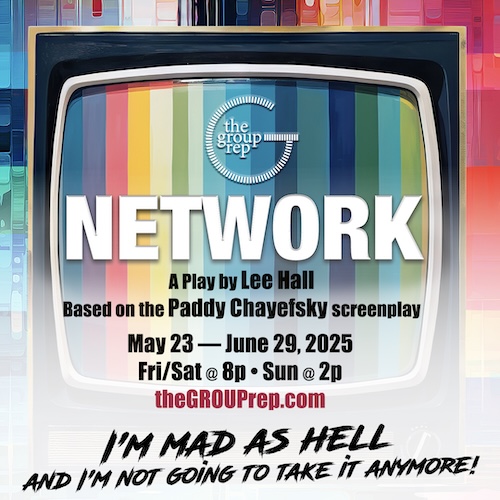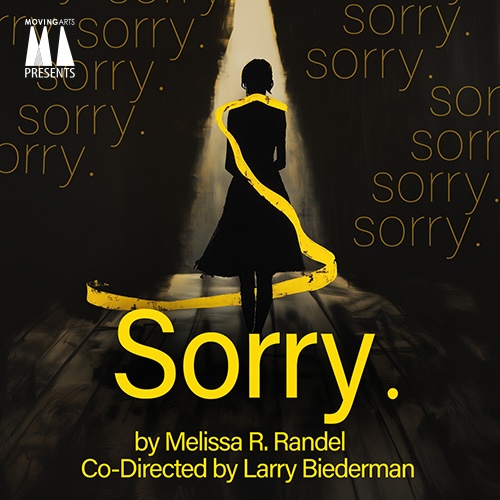Scott Jackson, Terry Davis, Dalia Vosylius (Photo by Alex Moy)
Reviewed by Martίn Hernández
Pacific Resident Theatre
Through January 14
RECOMMENDED
It would not be Christmas without family drama, trauma, and comedy, and Samuel D. Hunter’s play delivers all three and more in his bizarre exploration of domestic dissonance. Touching on the Obama-era Blue State/Red State divide, the consequences of self-denial, and String Theory, Hunter offers a caustic depiction of familial free fall that nonetheless suggests that there is love in even the most toxic relationships. Hunter also offers sober assessments of the dilemma of many empty nesters who are ill-prepared for life after the kids are gone, as well as the debilitating cycle of generational dysfunction and the struggle for women to control their own lives.
Following the sudden death of Martin (Phil Cass) days before Christmas, his wife Carol (Terry Davis) summons their children back to their small hometown of Viola, Idaho, for the funeral. Bo (Scott Jackson) is a New York-based, globe-trotting war photojournalist while Ally (Dalia Vosylius) is a successful businessperson, who, with her wife and toddler son, still lives close by. The siblings’ bourgeois lives are vastly different from their working-class upbringing, as both have been estranged from their parents — and each other — for years.
Carol has haphazardly painted the whole interior of the house white (including random magazines and even a Kleenex box), leading Bo and Ally to question her sanity, since Carol’s flippant behavior also belies that of a grief-stricken widow. In fact, she seems relieved that Martin is dead. As her children ply her with questions about their detached father’s demise, she blithely plies herself with alcohol — “I’m not drinking. It’s beer” — and reminds Bo and Ally of their parents’ detachment from and abuse of them growing up.
Turning the tables, Carol chastises her kids for their alienation from her and Martin, their class bias, and their replication of the same isolating behavior she and Martin used on them. When Carol gives them old VHS tapes that Martin recorded of himself after both kids left home, they reveal a version of Martin they never knew existed, giving them pause to reflect on their own self-delusions.
While Bo and Ally seemingly watch the tapes from a smaller living room TV, the audience only sees Martin through recordings displayed from a large upstage monitor — thanks to projection designer James Morris. Hunter uses this conceit to enhance Martin’s spectral presence and symbolize his deep dive into the scientific and metaphysical. The recordings also lead to the comical, with Carol’s sarcastic snipes heard in the background.
Michael Franco’s lighting design adds a spooky touch when Bo or Ally watch Martin’s tapes, while Andy Weyman’s set design is the epitome of coordinated chaos. The work gets wild at times, with Carol’s penchant for BB guns and Bo and Ally devolving to childish fisticuffs (expertly choreographed by Ned Mochel), but the cast play well off each other, thanks to Weyman’s steady direction and the actors’ adroitness at improvising when some lines went awry the night I attended.
Davis is both moving and a hoot as a woman who no longer needs pretense, marital, matriarchal, or otherwise. Jackson’s Bo is seemingly stoic given the gruesome nature of his work, yet still harbors a need for his belittling father’s approval. Vosylius’ canny proficiency at both humor and drama is evident in Ally’s hilarious verbal and physical sparring with Bo, and a touching confessional moment with Carol revealing Ally’s profound need for her mother’s acceptance.
Pacific Resident Theatre, 703 Venice Blvd., Venice; Thurs.-Fri., 8 p.m.; Sun., 3 pm (no perfs Dec. 24, 25, 31, and Jan 1.); thru Jan. 14. https://pacificresidenttheatre.org/. running time: two hours and 10 minutes with an intermission.













